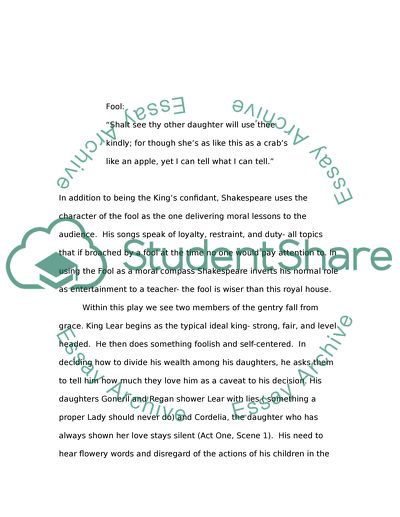Cite this document
(“Gender and Class Inversion in Shakespeare's Play King Lear Essay - 1”, n.d.)
Gender and Class Inversion in Shakespeare's Play King Lear Essay - 1. Retrieved from https://studentshare.org/literature/1437002-gender-and-class-inversion-in-shakespeares-play-king-lear
Gender and Class Inversion in Shakespeare's Play King Lear Essay - 1. Retrieved from https://studentshare.org/literature/1437002-gender-and-class-inversion-in-shakespeares-play-king-lear
(Gender and Class Inversion in Shakespeare'S Play King Lear Essay - 1)
Gender and Class Inversion in Shakespeare'S Play King Lear Essay - 1. https://studentshare.org/literature/1437002-gender-and-class-inversion-in-shakespeares-play-king-lear.
Gender and Class Inversion in Shakespeare'S Play King Lear Essay - 1. https://studentshare.org/literature/1437002-gender-and-class-inversion-in-shakespeares-play-king-lear.
“Gender and Class Inversion in Shakespeare'S Play King Lear Essay - 1”, n.d. https://studentshare.org/literature/1437002-gender-and-class-inversion-in-shakespeares-play-king-lear.


